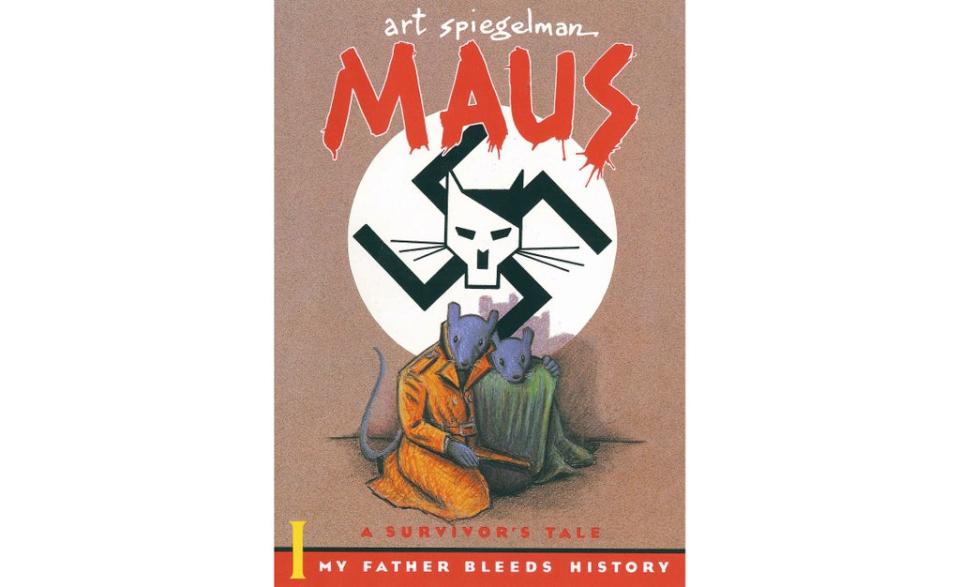‘Too adult-oriented’: Tennessee school board defends ban of Holocaust novel Maus
The Tennessee school board that banned the Holocaust novel Maus has defended its decision after prompting angry reactions online and condemnation from the author himself.
The graphic novel, Maus: A Survivor’s Tale by Art Spiegelman, uses illustrations of mice and cats to tell the story of how the author’s parents survived Auschwitz during the Holocaust.
It was serialised from 1980 to 1991 and, in 1992, became the first (and to date only) graphic novel to win a Pulitzer Prize – the Special Award in Letters.
On the McMinn County School board, 10 members unanimously agreed in favour of removing the novel from the eighth-grade curriculum, citing its use of eight curse words including the phrase “God Damn” and drawings of “naked pictures” of women.
After a social media backlash, the board members said in a statement that the book’s “unnecessary use of profanity and nudity and its depiction of violence and suicide" were too much for a class of 13 and 14-year-olds.
“Taken as a whole, the Board felt this work was simply too adult-oriented for use in our schools,” the statement read.
The board said its members “do not diminish the value of Maus as an impactful and meaningful piece of literature, nor do we dispute the importance of teaching our children the historical and moral lessons and realities of the Holocaust”.
They said teachers had been told to teach the Holocaust in a more “age appropriate fashion”, adding: “We all have an obligation to ensure that younger generations learn of its horrors to ensure that such an event is never repeated.”
“We simply do not believe that this work is an appropriate text for our students to study.”
School board issues statement about the removal of Maus. https://t.co/ftrt5woNxh pic.twitter.com/OdxYe29rAb
— Evan McMurry (@evanmcmurry) January 27, 2022
Spiegelman had said he was “baffled” by this decision in an interview with CNBC on Wednesday. “It’s leaving me with my jaw open, like, ‘What?’” the 73-year-old author said. He also called the ban “Orwellian”.
“I’ve met so many young people who… have learned things from my book,” Spiegelman said. “I also understand that Tennessee is obviously demented. There’s something going on very, very haywire there.”
The US Holocaust Museum also condemned the move, tweeting: “Maus has played a vital role in educating about the Holocaust through sharing detailed and personal experiences of victims and survivors. On the eve of International Holocaust Remembrance Day, it is more important than ever for students to learn this history.
“Teaching about the Holocaust using books like Maus can inspire students to think critically about the past and their own roles and responsibilities today.”

The ban on Maus arrives as conservative groups across the country, such as parent advocacy group Moms for Liberty, are pressuring schools to remove books from their libraries and curriculums. The books that cause offence often address race, LGBTQ issues and marginalised communities.
Last year, the American Library Association reported a troubling rise in organised attempts to ban – and in some cases even burn – library books.
In Virginia and Utah, Toni Morrison books have been removed from some school shelves due to “explicit” content. Alison Bechdel’s Fun Home was also pulled in North Kansas due to its LGBTQ themes. In southern Pennsylvania, a long list of books – almost exclusively written by people of colour – were banned.

